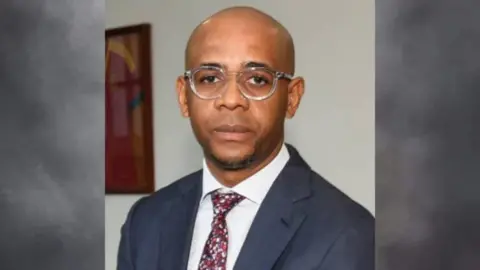For government officials, being called heartless is an occupational hazard. But Albania has chosen to turn that insult into a positive quality, by appointing an AI minister.
Not a minister for artificial intelligence. Rather, a cabinet member who is, literally, the work of AI.
The new addition is, like a pop star, known simply by the single name: Diella.
Prime Minister Edi Rama introduced her as a member of his new cabinet on Thursday, four months after securing his fourth term in office in May elections.
However, the move was symbolic rather than official, as Albania's constitution insists that government ministers must be mentally competent citizens aged at least 18.
Still, the advantages of appointing a bot over a human are obvious.
Diella, whose name means sun in Albanian, is unlikely to be the source of any unflattering leaks about the government. She will only be power-hungry in the sense of the electricity she consumes. And a damaging expenses scandal would appear to be out of the question.
In fact, corruption was uppermost in Rama's mind when he made Diella part of his team as minister for public procurement.
Her role will be to ensure that Albania will become a country where public tenders are 100% free of corruption.
We're working with a brilliant team, which is not only Albanian but also international, to come out with the first full AI model in public procurement, the prime minister told the BBC.
Diella had already been working in Albania even before the government appointment. Her first incarnation was as an AI-powered virtual assistant, guiding applicants through the process to obtain official documents.
Rama boasts that Diella has helped more than a million applications on the e-Albania platform. But his vision for AI's government role is a lot grander than a mere chatbot.
He talks of leapfrogging bigger, more advanced countries, which are still locked into traditional ways of working.
Reactions to Diella's new role are, understandably, mixed. The opposition Democratic Party has labelled the initiative ridiculous and unconstitutional.
But others are cautiously optimistic.
The founder of financial services company Balkans Capital, Aneida Bajraktari Bicja, notes that Edi Rama often mixes reform with theatrics, so it's natural people wonder if this is symbolism. But she says the 'AI minister' could be constructive if it develops into real systems that improve transparency and trust in public procurement.
Anti-corruption experts have also noted the potential for AI to be deployed to minimise graft.
AI is still a new tool – but if it is programmed correctly, when you put a bid in online, you can see clearly and more closely if a company meets the conditions and the criteria, says Dr Andi Hoxhaj of King's College London, a specialist in the Western Balkans, corruption and the rule of law.
Edi Rama does not deny that there is an element of a publicity stunt to his latest wheeze. But he insists that there is serious intent behind the playful presentation.
It puts pressure on other members of the cabinet and national agencies to run and think differently. This is the biggest advantage I'm expecting from this minister, he says.
In other words, ministers beware: AI could be coming for their jobs as well.



















